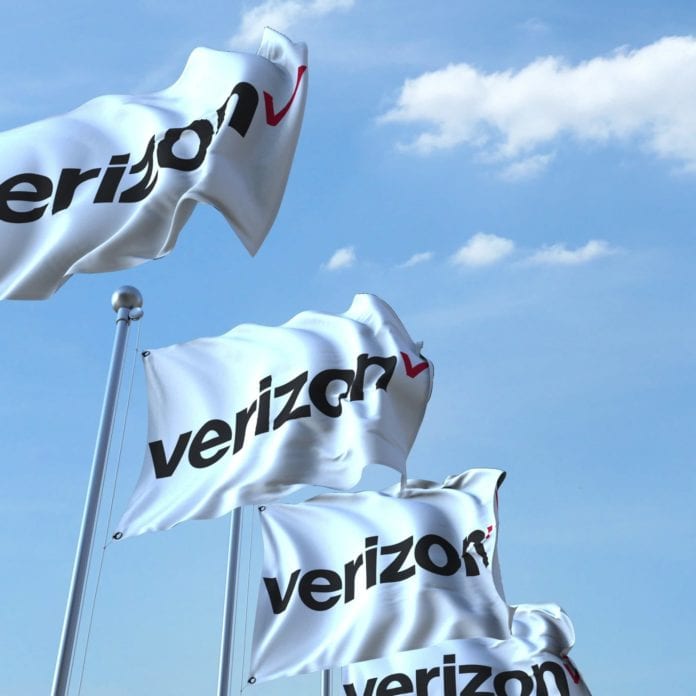Verizon’s chief sustainability officer: ‘We’re committed to reducing our environmental impact and supporting the transition to a greener grid’
Peters Suh, industry lead for North America at Accenture’s Communications & Media, told RCR Wireless News that even as 5G leads to more network efficiencies and to use cases that will likely offset any increase in power consumption, it is still crucial for telecom operators to get onboard with reducing the carbon footprint of our networks. This is because, according to him, the global communications industry produces twice as large a carbon footprint as the airlines industry.
The good news, though, is that there is a heightened focus on sustainability and climate change among operators, and even more important, the effort appears to be genuine.
“We are starting to see more and more of our customers saying I want to hear that story,” said Suh. “It has a dual benefit. One is if operators are more efficient, you have lower operating costs, but there is also that sustainability element as well.”
Verizon is one operator with its ear firmly turned to this story of sustainability. In the Q & A below, James Gowen, Verizon’s senior vice president of supply chain operations and chief sustainability officer, shares further insight into the carrier’s green goals and how it plans to get there.
Q: What are Verizon’s most notable sustainability goals?
A: The blanket statement is that we’re committed to reducing our environmental impact and supporting the transition to a greener grid, bottom line. Being a network company, our biggest impact is energy, so that’s why we are doing so much with energy efficiency and renewable energy.
If I take it up a level, our biggest commitment and loftiest goal is now that we will be net-zero in our operations by 2035. That’s scope 1 and Scope 2, which are the fuels and the energy. Then you look at Scope 3, which is our biggest impact on the world because it’s our value chain and our supply chain. The Scope 3 piece is focused on reducing our operational emissions by 53% by 2030 and then our value chain scope 3 by 40% by 2035.
Q: How is the company achieving these goals?
A: We recently announced seven renewable energy purchase agreements, totaling 910 megawatts of additional renewable capacity, which differentiates us from others. Our entire strategy is about additionality. It is not about going out and buying green RECs [Renewable Energy Certificates] that already exist; we want to make sure we are greening the grid and greening it with new, additional activity.
Those additional seven purchase agreements bring us to 20 total renewable energy purchase agreements in three years — more than 2.6 gigawatts of renewable energy that is being built into the system. It equals about 4.8 million metric tons of CO2 reduced annually.
Again, energy is what drives our data centers and our networks, so that’s why we’ve put our focus here. It’s all solar and wind because that’s the greenest we have. We’ve looked at natural gas, and we’ve done some things there. It’s good, but I only look at it as being about 45% better than brown energy.
We are also planting 200 million trees and have a commitment of 10 million pounds of e-waste. We are also focused on our people — we’ve got the largest green team, we think, in the world. We’ve got more than 50,000 Verizon employees in 54 countries that are part of our voluntary green team.
Q: What role do you believe telecom companies play in ensuring a more sustainable future?
A: Selfishly, I’d say we are probably responsible for the biggest enabling role in changing the way the world really lives sustainability with things like 5G and IoT and sensors. Disney World, for example, and the way you can find a parking spot now. Silly example, but it’s really important when you think about its impact on driving. Or addressing water pipe leaks in New York City. All these things are done through sensors running on a network, and 90% of the time these days, it’s a wireless network. Irrigation, remote working. There are so many opportunities for technology companies — more than any other industry out there, I believe — to really change the way the world works.
Q: How important are partnerships in achieving sustainability goals?
A: We’re not doing it alone. There’s a lot of competition out there, but I’m sitting with AT&T to my right, Huawei two over from me and the rest of our global competitors and we’re talking about how we need to do things better and together to raise us all. It’s just an amazing conversation to have. We leave those rooms and we’re staunch competitors, but when it comes to sustainability, we realize that a rising tide lifts all ships.

